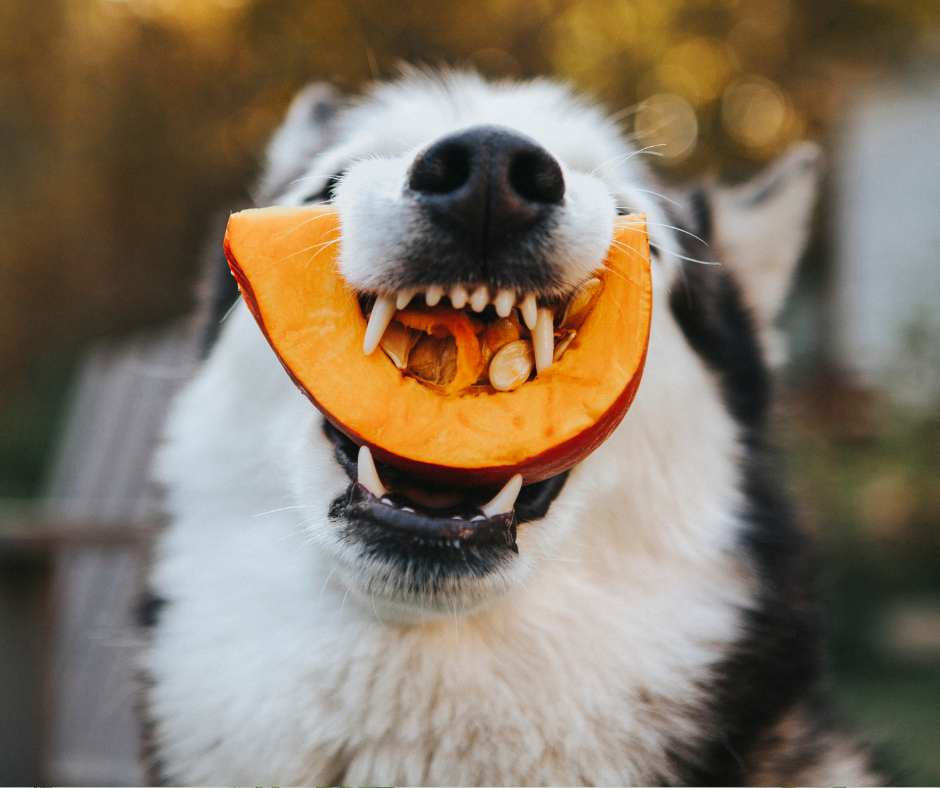
The Secret Link Between Gut Health and Itchy Paws!
Share
If your dog struggles with itchy skin, ear infections or allergies, you know how frustrating it can be - for both of you! But are you just treating the symptoms or getting to the root cause?
Research shows a strong connection between gut and skin health in dogs. When the gut microbiome (the community of bacteria and other microorganisms in the digestive system) is out of balance - a condition known as dysbiosis - the immune system can become overactive, leading to inflammation, itchiness and even food sensitivities.
The good news? Supporting your dog's gut can help calm irritation from the inside out.
How to Support the Gut-Skin Connection
Feed the gut – prebiotic-rich foods like pumpkin and flaxseed nourish beneficial gut bacteria. Think of prebiotics as fuel for the good microbes.
Strengthen the barrier – the gut acts as a protective shield - think of it as being a bit like a sausage. Probiotics help maintain a strong gut lining, preventing particles and toxins from leaking into the bloodstream and triggering immune reactions.
Reduce inflammation – omega-3s, quercetin, turmeric and postbiotics work together to soothe irritated skin and support a healthy immune response.
Key Nutrients for Gut-Healthy Skin
Omega-3s – Anti-Inflammatory Powerhouses
Omega-3 fatty acids help reduce inflammation, hydrate the skin and support the skin barrier.
Food sources
Sardines (ethically caught, no added salt) – one sardine per 10kg dog
Salmon (cooked) – offer a small portion - it is packed with EPA and DHA
Flaxseed oil or chia seeds – ½ teaspoon ground flaxseed/chia per 10kg body weight
Green-lipped mussels – a natural source of omega-3s and joint support
Turmeric is a powerful natural anti-inflammatory that can help dogs with allergies and calm inflammation by reducing histamine release and supporting the immune system. Check out our blog on Golden Paste to learn how to make this easy anti-inflammatory recipe for your pawsome pup.
💡 DIY tip
Mix a little sardine, flaxseed oil or green-lipped mussels into meals for an omega-3 boost.
Quercetin – Nature’s Antihistamine
This natural antihistamine helps reduce allergic reactions and soothe itchy skin.
Food sources
Apples (no seeds) – offer a few small pieces
Blueberries – anti-inflammatory and antioxidant-rich nutrient powerhouses. Frozen berries are better value and great for hydrating on a hot day.
Broccoli sprouts are a powerful anti-allergy food (chopped finely and mixed into meals). Try growing your own in a tub or on your windowsill.
Spinach, kale, broccoli or cauliflower (lightly steamed) – supports quercetin absorption.
💡 DIY tip
Mash some blueberries and/or chopped apples and stir into plain yoghurt for a skin-boosting snack.
Postbiotics – The Gut-Skin Connection
Probiotics produce these beneficial compounds, which are the chemicals that help reduce inflammation and allergic reactions.
Food sources
Fermented veggies (unsalted sauerkraut or kimchi) – ½ teaspoon per 10kg dog
Kefir or unsweetened yoghurt – probiotic-rich and gut-friendly
Bone broth (fermented or with prebiotic ingredients) – supports gut health and skin hydration. Check out our recipe in the blogs.
Miso (no added salt, tiny amounts) – a fermented, probiotic-rich food
💡 DIY tip
Add bone broth to meals to enhance the gut with its unique ingredients.
Have You Noticed a Change in Your Dog's Skin?
Have you adjusted your dog's diet and seen less itching, allergies or skin irritation? We'd love to hear about it! Share your experience in the comments below.
📖 References
🔬 Rodrigues Hoffmann et al. (2020). The skin microbiome in healthy and allergic dogs. Vet Dermatol.
🔬 Alessandri et al. (2020). Gut microbiota and skin health in humans and pets. Front Microbiol.
